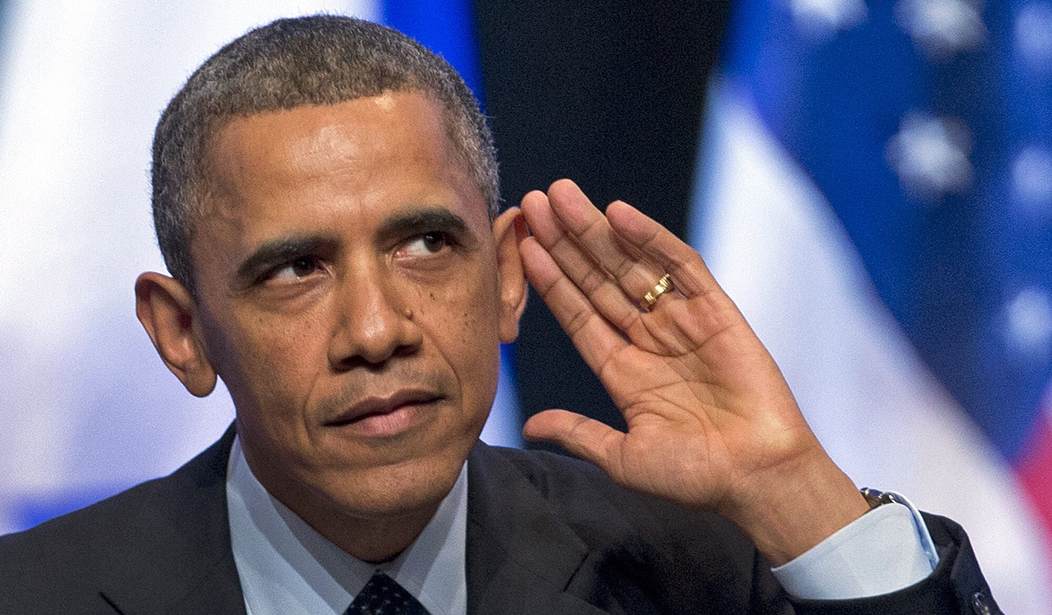Tom Hanks gives all the credit for his successful entertainment career to the community college in California from which he graduated.
“Chabot’s a community college — and in the early 1970s, it was all free, save for the effort you put into it and the price of used textbooks,” Hanks wrote in an email supporting President Obama’s call for free tuition at America’s community colleges.
“I drove past Chabot’s campus a few years ago with one of my kids and summed up my two years there this way: ‘That place made me what I am today.’”
President Obama wants to see 5 million more like Tom Hanks by 2020. To do that, Obama wants to provide a free two-year community college education to high school graduates, mostly at federal taxpayer expense.
He pushed that agenda this month at Macomb Community College in suburban Detroit.
“For every young person willing to work hard, I want community college to be as free and universal as high school,” Obama added. “I’ve been focused on community colleges. They are at the heart of the American dream.”
Obama used the occasion to announce the creation of the College Promise Advisory Board with the sole task of making two years of community college tuition free. He also established Heads Up America. Obama described it as an “independent campaign” to convince the nation of the importance of community colleges.
Unfortunately for Obama’s plan, experience has shown those community college students need more than a free ride.
Fact is, except for providing certification training for blue-collar workers, which is important, community colleges just don’t work very well.
Nationally, most high school graduates who enter community college with the idea of coming out with a two-year degree never get a diploma, whether they paid for the experience or not.
Since Obama made his most recent pitch for free community college tuition in Michigan, we will look at how community colleges are doing in Michigan, as well as the nation.
But we will begin by looking at an effort to send every high school graduate in one city in Michigan to college, free of charge.
The Kalamazoo Promise is a program funded by an anonymous donor that provides free college tuition to every student who graduates from high school in Kalamazoo, Mich.
In a way, it’s a dream that has yet to come true. The Kalamazoo Promise shows the fallacy of Obama’s assumption that if we only send more students to college, we will have more people with college degrees.
A study by the nonpartisan Brookings Institution released in August, the tenth anniversary of Kalamazoo Promise, showed that although more Kalamazoo high school grads than ever enrolled in college, most did not do very well.
The Brookings study showed Kalamazoo high school graduates were no more likely than other Michigan high school graduates to have earned 24 college credits within sixteen months of graduating from high school.
Nor did the Kalamazoo Promise solve the problem of racial disparity in four-year institutions.
The study showed “white students were about twice as likely to have earned 24 credits than black students, as were middle class students compared to the economically disadvantaged. There are also wide gaps by race and economic background in the chances of enrolling in four-year college versus community college.”
The Brookings study also demonstrated another problem with the Obama plan to provide a free community college education: community colleges just don’t work very well for the Kalamazoo Promise students.
The Brookings study showed “just 21 percent of Kalamazoo high school graduates who enrolled in community colleges earned a postsecondary credential, compared to 65 percent who enrolled in a four year college.”
It isn’t just the Brookings study or Kalamazoo, Mich.
Again, focusing on Michigan, the tragedy is that no matter how high enrollment might go, even if classes were free, most students would probably never graduate with a two-year degree.
The National Center for Education Statistics’ Integrated Postsecondary Education Data System shows the community college graduation rate in Michigan is 15-20 percent.
Mike Hansen, the president of the Michigan Community College Association, admits that seems shockingly low.
But he stressed that covers only first-time, full-time students who are seeking a degree. It does not include part-time students or full-time students who might be planning on transferring to a four-year school.
It also only covers students who complete their associate’s degree in three years.
Hansen said many students take much longer than that to get a degree, but they still get a degree. However, Obama’s plan would only cover the first two years of their community college enrollment.
He admitted retaining students is a challenge. Part-time students or students who just want to pick up a couple of courses typically will “stop out,” meaning they will take classes for a semester, skip the next semester and return the following semester.
Hansen said that is because most people don’t even enter community college with an expectation of graduation.
Ironically, Obama chose a school with one of the lower graduation rates, Macomb Community College, for his September speech.
The U.S. Department of Education data compiled by collegemeasures.org shows Macomb Community College’s “success rate,” according to federally reported three-year graduation rate plus transfer rates, is only 43 percent.
But that is still better than the 37.6 percent national graduation plus transfer rate for two-year public community colleges, again as compiled by collegemeasure.org.
Private community colleges do much better with a graduation plus transfer rate of nearly 57 percent.
That compares to 57.4 percent for public four-year schools and 65.3 percent for private, not for profit, four-year colleges and universities.
What’s the problem? Maybe the instructors aren’t good enough. Maybe they are even scaring the kids away.
As Jay Mathews pointed out in a recent Washington Post column, education scholar Rebecca D. Cox, who spent five years studying community colleges, concluded that bad professors should shoulder much of the responsibility for students who fail to graduate.
Cox concluded community college professors, puffed up with their own importance, were actually scaring first-year students so badly by telling them how tough their courses would be that students unprepared for the experience were afraid to ask them for any help.
One of the students complained to Cox that she just couldn’t understand what her instructor was talking about.
“It’s really tough for me because I’ve never done it before, and she sort of goes through it in class, but she doesn’t really give examples of how to write it, like, she says, ‘Discuss this, discuss this,’ but she doesn’t give an example of how to write it out.”
The Cato Institute’s Neal McCluskey pointed out another problem with the idea of free community college for even the better high school graduates: most of the job categories where the U.S. Labor Department expects to see the greatest employment growth don’t require even a two-year degree.
“Of the 30 occupations that the U.S. Department of Labor projects to see the greatest total growth by 2022, only 10 typically need some sort of postsecondary education, and several of those require less than an associate’s degree,” McCluskey wrote. “Most of the new jobs will require a high school diploma or less.”
McCluskey also warned most of the students who would hop on the free train to community college could better spend their time elsewhere.
He said Obama’s free tuition program would only encourage “people to spend two years in community college fully on the taxpayer dime while they dabble in things they may or may not want to do — as they maintain a pretty low 2.5 GPA.”
However, Mike Hansen believes Obama’s call for free community college tuition could have an impact, if he manages to win approval for the program from a Republican-controlled Congress.
“I think it would be a huge first step.”








Join the conversation as a VIP Member